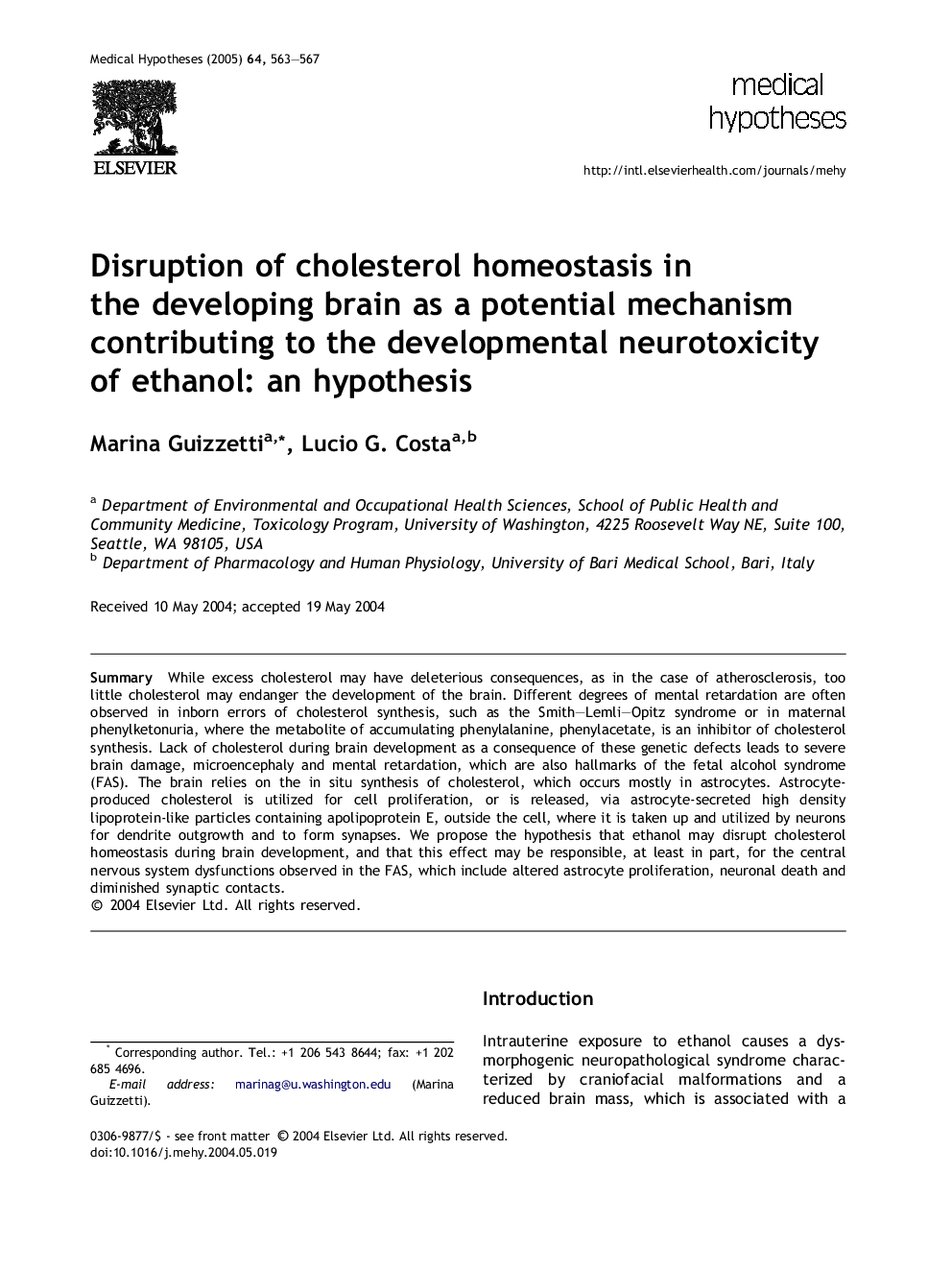| Article ID | Journal | Published Year | Pages | File Type |
|---|---|---|---|---|
| 8995919 | Medical Hypotheses | 2005 | 5 Pages |
Abstract
While excess cholesterol may have deleterious consequences, as in the case of atherosclerosis, too little cholesterol may endanger the development of the brain. Different degrees of mental retardation are often observed in inborn errors of cholesterol synthesis, such as the Smith-Lemli-Opitz syndrome or in maternal phenylketonuria, where the metabolite of accumulating phenylalanine, phenylacetate, is an inhibitor of cholesterol synthesis. Lack of cholesterol during brain development as a consequence of these genetic defects leads to severe brain damage, microencephaly and mental retardation, which are also hallmarks of the fetal alcohol syndrome (FAS). The brain relies on the in situ synthesis of cholesterol, which occurs mostly in astrocytes. Astrocyte-produced cholesterol is utilized for cell proliferation, or is released, via astrocyte-secreted high density lipoprotein-like particles containing apolipoprotein E, outside the cell, where it is taken up and utilized by neurons for dendrite outgrowth and to form synapses. We propose the hypothesis that ethanol may disrupt cholesterol homeostasis during brain development, and that this effect may be responsible, at least in part, for the central nervous system dysfunctions observed in the FAS, which include altered astrocyte proliferation, neuronal death and diminished synaptic contacts.
Related Topics
Life Sciences
Biochemistry, Genetics and Molecular Biology
Developmental Biology
Authors
Marina Guizzetti, Lucio G. Costa,
